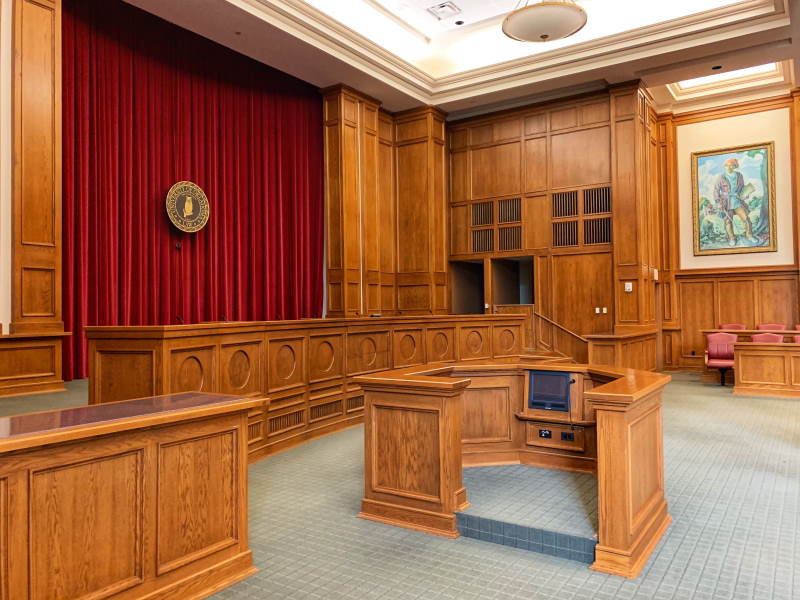Conflicts between landlords and tenants are pretty common in Orlando, Florida. This can often be blamed on a misunderstanding of Florida’s landlord-tenant law.
A landlord, for instance, may think it’s okay to enter rented premises without permission as it’s their property. However, a tenant, knowing their right to privacy, may move the issue to court, citing landlord harassment.
Also, a tenant may think that they have left the property in good condition after moving out, but upon closer inspection, a landlord may disagree. This means they might deduct all or a portion of the tenant’s security deposit to cover the repairs.
Having a basic understanding of Florida landlord-tenant laws and Florida rental laws is important for both tenants and landlords, which is why we here at TrustHome Properties have made this article to help you.
Required Landlord Disclosures in the State of Florida
The following are the disclosures Florida landlords must provide their tenants.
- The identity of the landlord or property manager authorized to act in his or her position. The landlord must also provide tenants with their names and addresses.
- Any presence of radon gas. Levels of radon that exceed federal and state guidelines have been found in some buildings in Florida. Radon is a dangerous gas, and a home left untreated can result in serious health issues and even death. In fact, according to the Florida Department of Health, radon is the leading cause of lung cancer in nonsmokers.
- The availability of fire protection. Florida landlord-tenant law also requires landlords to notify their tenants of the availability of fire protection in all buildings exceeding three stories.
- Details about the security deposit. In Florida, landlords must notify tenants of the details surrounding the storage of their security deposit. A landlord must disclose the type of account in which they keep the deposit, as well as the details pertaining to any interest accrued and rate of interest payments.
Of course, all these disclosures must be provided before the tenant signs the lease agreement. This ties in with the Orlando, FL lease agreement laws.
Florida Tenant Rights and Responsibilities
A tenant in Florida has a right to:
- Live in a safe and habitable rental property.
- Enjoy their property in peace and quiet.
- Receive written notice whenever a landlord needs to enter.
- Receive written notice whenever a landlord makes changes to the lease agreement.
- Have repairs done within a reasonable period of time after requesting them.
- Remain in their rented property until the lease expires or the landlord follows due process of the law to evict them.
A tenant in Florida has a responsibility to:
- Pay rent on time.
- Care for the property by keeping it clean and sanitary.
- Notify the landlord when away for an extended period of time.
- Notify the landlord when a maintenance issue crops up.
- Abide by all terms of the agreement. For example, not to keep pets or sublet the property when it’s against the lease.
- Provide the landlord sufficient notice when planning to move out.
Landlord Rights and Responsibilities in the State of Florida
Florida landlords have a right to:
- Receive adequate notice from tenants who are planning to vacate.
- Enforce the terms of the lease agreement.
- Be notified by tenants when maintenance issues crop up.
- Be notified by tenants who are leaving town for an extended period of time.
Landlords in Florida have a responsibility to:
- Follow the correct eviction procedure (according to the Florida eviction statute) when evicting tenants.
- Not retaliate against a tenant exercising their legal rights.
- Respect the privacy of tenants by providing them adequate notice before entering their rented premises.
- Provide their tenants with a habitable residence.
- Follow state rent rules; for example, when raising the rent or when evicting a tenant who hasn’t paid rent.
- Not discriminate against tenants based on the state’s protected classes.
An Overview of the Landlord-Tenant Laws
1. Landlord’s Entry
In Florida, landlords must provide their tenants with at least 12 hours’ notice prior to entering the rented premises. Landlords may enter rented premises for reasons such as:
- Tending to an emergency.
- Making requested repairs.
- Showing the rental unit to prospective tenants, buyers or lenders.
- Checking if the tenant has abandoned the property.
- Pursuant to a court order.
2. Habitability
It’s a landlord’s responsibility to provide a property that adheres to the state’s Warranty of Habitability law. The following are some characteristics of a habitable rental property:
- Properly functioning locks
- Well-maintained stairways, floors, and railings
- Adequate garbage receptacles
- Vermin-free, clean grounds and building
- Up-to-code and functioning heating, lighting and electrical facilities
- Up-to-code plumbing and water supply
- Effective weatherproofing of the windows, walls and roof
3. Discrimination Laws
Renter discrimination in Florida, much like everywhere else in the country, is illegal. It’s against the law for landlords to discriminate against tenants based on the state’s protected classes. The protected classes include race, national origin, religion, sex, disability, age, citizenship status, and marital status.
4. Security Deposits
Although not a requirement under any law, practically all landlords in Florida require a security deposit. A security deposit is essentially meant to protect a landlord against financial ruin from tenant damage.
Security deposits help landlords:
- Repair damage to the property exceeding normal wear and tear.
- Cushion landlords against income loss from a tenant that breaks their lease early or one that abandons it altogether.
- Cushion landlords from tenants that default on paying rent.
- When excessive cleaning costs are required after a tenant moves out from the property.
- When a tenant moves out and doesn’t clear their utility bills.
5. Florida Renters Rights to Withhold Rent
Landlords have a legal responsibility to provide tenants with a property that meets the basic structural, health, and safety standards. If a landlord fails to do so, tenants can take several actions including:
- Withholding rent
- Moving out without further responsibility under the lease
- Suing the landlord
- Notifying state authorities
- Exercising their right to “repair and deduct”
6. Small Claims Lawsuits
Both landlords and tenants can file to sue the other in a small claims court. In Florida, the maximum amount anyone can sue for in this case is capped at $5,000.
Disclaimer: This blog isn’t a substitute for legal advice and is only meant to be informational. If you require further help, please consider hiring professional help from a qualified law professional or property management company.




